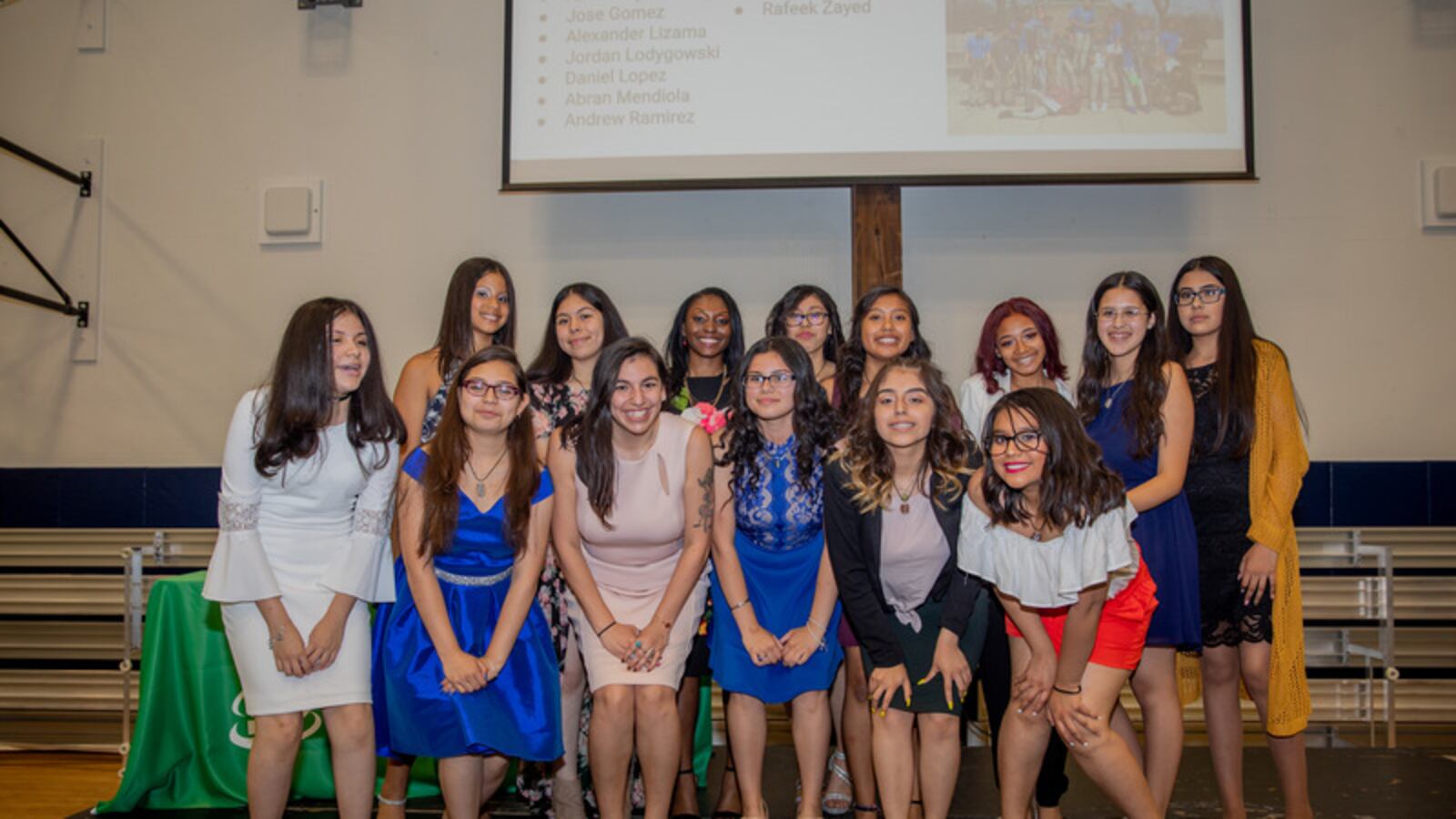Charter-school supporters packed a little-publicized hearing called Wednesday evening to gather input on proposals to open three specialized charter schools in the Chicago Public Schools system.
More than 50 people gathered before Margaret Fitzpatrick, an independent hearing officer hired by the district, to lobby her on proposals for three new schools. Intrinsic Charter School seeks approval for a citywide high school. Project Simeon 2000 proposes a middle school serving at-risk youth in Englewood. And Chicago Education Partnership wants to open a traditional K-8 school in Austin.
If approved, the schools would open for next school year.
As part of the first group of parents who sent their children to Intrinsic when it opened its first school, Lucy Weatherly said she unequivocally supported opening a second school under the network. “We wanted something different for our son,” Weatherly said. “I owe them for a lifetime.”
“Intrinsic is a place that fully supports the holistic growth of students, who get a chance to really discover themselves,” said Ashley Ocanta Matthews, a teacher at Intrinsic.
While most speakers championed the charters proposals, teachers union representatives spoke forcefully against them.
“You deserve a raise, you deserve better healthcare, you deserve the ability to speak collectively with your boss, you deserve not to be terminated without cause,” said Martin Ritter, an organizer with the Chicago Teachers Union, directing his comments to teachers working at non-union charter schools. “If you’re interested in joining a union, I’ll meet you in the hallway.”
Tension has been brewing at unionized charter schools. Teachers at the Acero charter network announced earlier Wednesday that they would strike on Dec. 4 if contract talks remain stalled.
The Chicago district already oversees 142 non-traditional campuses, either charter, contract or option schools, according to Hal Woods, director of school development with Chicago Public Schools. Contract schools are operated by private companies on contract and often offer a curriculum that differs from that in traditional schools. Option schools are privately run and serve students who have been expelled or previously incarcerated.
After a team including district employees from a variety of education fields and an out-of-state-analyst review each proposal, administrators will forward a recommendation to the board of education for a vote Dec. 5.
Intrinsic Charter School
Supporters, many from a current of Intrinsic Charter School, urged the district approve a second campus. The school, opened in 2013, has won a 1-plus rating, serving a student body that’s 90 percent Hispanic and 82 percent low-income.
The school touted its “personalized learning” model, in which a class of more than 60 students learn in “pods,” as the network calls classrooms, and move between projects and independent work. It is considering locating a new school at either 79 W. Monroe or 1357 N. Elston.
“I’m lucky we found Intrinsic,” said parent Angela Ibarra, one of many parents wearing Intrinsic T-shirts Wednesday. The school, she said, “fits my boy and is not one he had to find a way to fit into.”
Ibarra, mother of a 13-year-old, said she appreciates the individualized learning.
If approved the Intrinsic 2 high school would eventually serve 1,080 students.
Several teachers and parents spoke in support of Intrinsic, many wearing Intrinsic T-shirts. They focused on the varied paths that students could take after high school, either college or part-time work.
Kemet Leadership Academy Charter
The non-profit group Project Simeon 2000 has proposed an alternative middle school focusing on black male students. It would feature project-based learning, comprehensive support services, and skills needed by local employers. Its supporters said the Chicago district is failing boys of color.
“I know from personal experience that it takes a black male with discipline to give black boys what they need,” said Francis Newman, mother of five African-American sons and a supporter of the proposed Kemet Academy Charter. “No other community looks for someone outside the community to raise their children.”
The school would target students who have single parents, are more than one grade level behind academically, or have been involved in the juvenile justice system. It would serve 500 students in Greater Englewood, at a campus possibly at 6201 S. Stewart or 6520 S. Wood.
Moving Everest 2
The Moving Everest 2 school, backed by people with roots in Christian education, promises both a “joyful and character-building school environment” for 810 students by offering academic and after-school services in the Austin area.
Michael Rogers, the founder and executive director, promised a full-time social worker, dental care, and a third meal of the day to students.
Ortabia Townsend, a mother of seven, said that she knows Austin families who have strong connections to the first Moving Everest school.
“There is a lot of love at that school,” she said.
The school, run by the Chicago Education Partnership, is rated a 2-plus. The partnership seeks to open a second school. Its current campus, projected to serve 810 K-8 students, has enrolled 444 students this year. The new school is proposed for 1830 N Leclaire Ave.
While the proposal does not mention Christian education values, several members of the school’s board of directors have their roots in Christian education. The after-school program that partners with the school, By the Hand, is a “Christ-centered” program.
After district leadership make recommendations on the schools, the school board will vote on the charter proposals Dec. 5.

